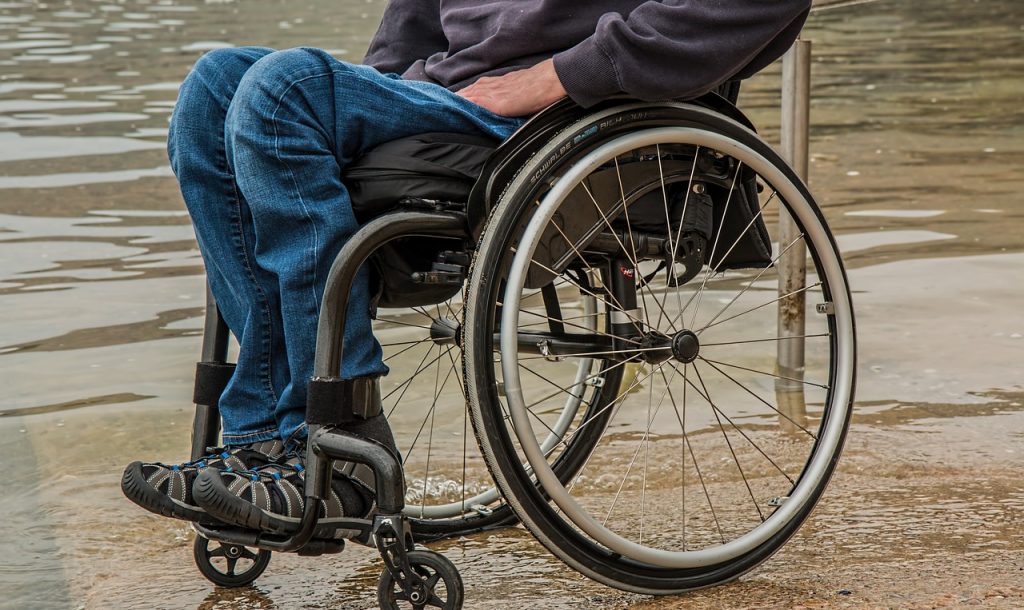Indonesia’s people with a disability continue to struggle, writes Muhammad Zulfikar Rakhmat.
Access to education and other social services remains a problem for people with a disability in Indonesia. Of 37 million people with a disability only a few have succeeded in completing education up to university level.
Some cannot access education at all, being rejected by public schools, even at kindergarten level. These struggles also continue during their education where necessary facilities are not provided. The same problem repeats itself when they move on to higher levels of education, with the need to move around to find schools that are ready to accept their conditions.
Although efforts have been made toward inclusive education, in reality only a few people with a disability enjoy this. Parents of children with special needs often have no option but to accept that their children must be relegated to special schools. The problem is that such schools do not have appropriate curriculum designed to accommodate the needs of each student due to the lack of resources, which leads to the students receiving inappropriate and inadequate teaching.
In these schools, children with physical disabilities, cognitive impairments, developmental delays, behavioural issues, and learning disabilities are grouped in the same classroom. With no curriculum, and reliance on teachers’ individual lesson plans, none of these children have a chance to receive a full education. The teachers teach students preschool level curriculum, such as colour identification, and counting from one to 10, year after year, regardless of the fact that some students are able to study with their age groups. Not only do the schools undermine their intelligence and ability, they also cause academic setbacks, making them unable to move forward. When these individuals can make it to higher education levels, they are frequently channelled into certain fields that are considered suitable for them.
In addition, due to their lack of education, many Indonesians with a disability are left with limited choices and access to highly valued and well-paid employment. They are also frequently denied from certain jobs because they are perceived as incapable. These problems have caused a large number of people with disabilities to be significantly less financially stable than their counterparts. It is not uncommon that employers have no idea how to accommodate workers with a disability. In many circumstances there is clear discrimination with qualified candidates nonetheless sidelined due to limited experience in accommodating employees with a disability.
However, it cannot be denied that with increasing efforts by the government, the private sector, relevant institutions, the general public, and people with a disability, the issue of discrimination is starting to emerge in the public sphere, which could bring a positive response from government. For example, in 2014 people with a disability were given a special quota to enter the civil servant (CPNS) – amounting to 300 seats across different ministries and agencies. A number of public agencies also began to promote employment opportunities for people with a disability.
Nonetheless, policies enacted in Jakarta are often not conveyed properly in local areas. In the case of CPNS, for instance, the fact that only 10 per cent of the 300 allocated seats are actually given to people with a disability is because the minimum requirement for an applicant is a bachelor’s degree. The policy disregards the reality that very few people with a disability have the privilege of attending university.
A path towards an Indonesia that is more inclusive of people with a disability requires effort from all facets of society. The first thing is to revamp the curriculum at special needs schools and to properly incorporate inclusion principles into the education system so that attaining proper education for people with a disability is no longer impossible. There is also a need to get rid of the idea that people with a disability are only fit and able to perform service jobs. With the advancement of technology, the gap between people with a disability and their counterparts is increasingly shrinking.
It is the time for them to be encouraged to participate in the workforce, especially high-earning and respectable jobs. People with a disability in Indonesia will be empowered and independent if they are able to work and have a stable source of income. In this way, their financial and social strata will also be lifted, and Indonesia will become a better country.
Muhammad Zulfikar Rakhmat is a PhD scholar at the University of Manchester.
Dikanaya Tarahita is a freelance writer from Indonesia.
 Facebook
Facebook  Twitter
Twitter  Soundcloud
Soundcloud  Youtube
Youtube  Rss
Rss 